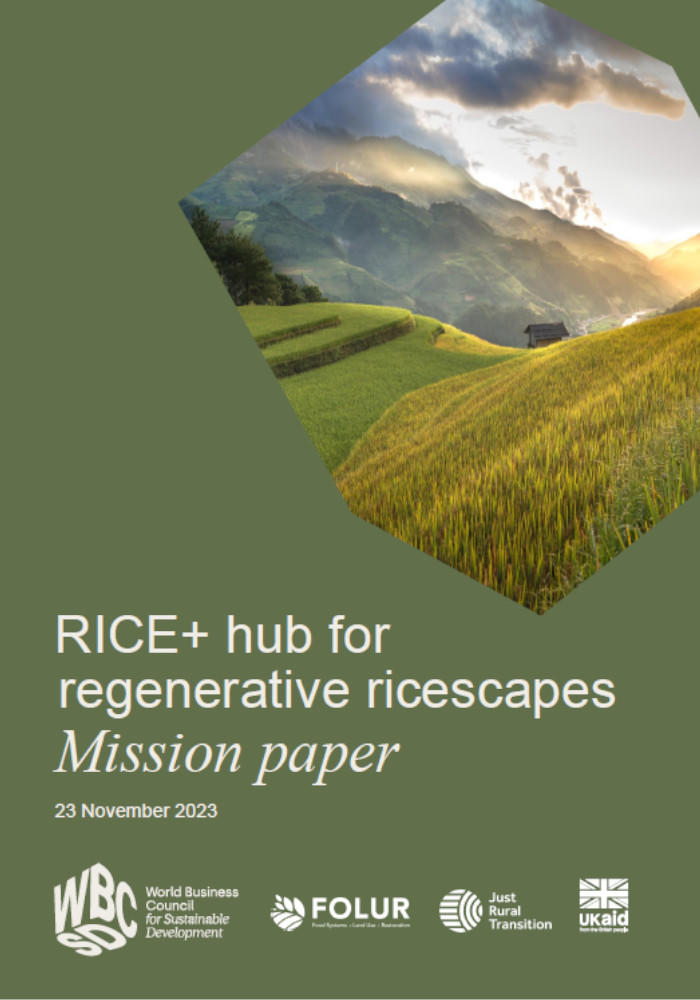
Given the unique opportunity for sustainable rice landscapes to deliver solutions for climate mitigation and adaptation, nature recovery, and improving farmer livelihoods while contributing to food and nutrition security, there is an urgent need to target finance and scale up actions in high-impact landscapes.
What is it about and key findings:
The Mission paper provides information about the significant climate, nature and equity positive impact potentials, as well as the emerging opportunities to scale private sector investments and collective action for sustainable rice. It also identifies the range of challenges that currently limits the acceleration of the rice sustainability transition at the scale needed, which include: customized support for rice farmers, transition costs and long-term agreements, sustainability target-setting guidance gaps, barriers to engaging in Voluntary Carbon Markets, and public and private sector investment gaps.
The objective of the RICE+ Hub for Regenerative Ricescapes Mission Paper is to serve as an action plan to facilitate pre-competitive private sector collective actions and investments across the entire rice value chain. These investments and collective actions will accelerate rice-related carbon, climate, nature and Nature-Based Solutions (NBS) investments and project implementation to scale sustainable rice in priority countries and landscapes, starting with a focus on the major rice-producing regions of South and Southeast Asia.
To accelerate the transition of rice production systems and landscapes to be equitable, regenerative and resilient, the RICE+ hub will focus on and facilitate 3 priority Action Areas through mobilizing our members and partners: 1) forging public-private investment alliances; 2) promoting high-integrity rice carbon and sustainability standards; 3) expanding knowledge exchange and promoting innovations by the private sector across the rice value chain.
Link to other WBCSD related work:

